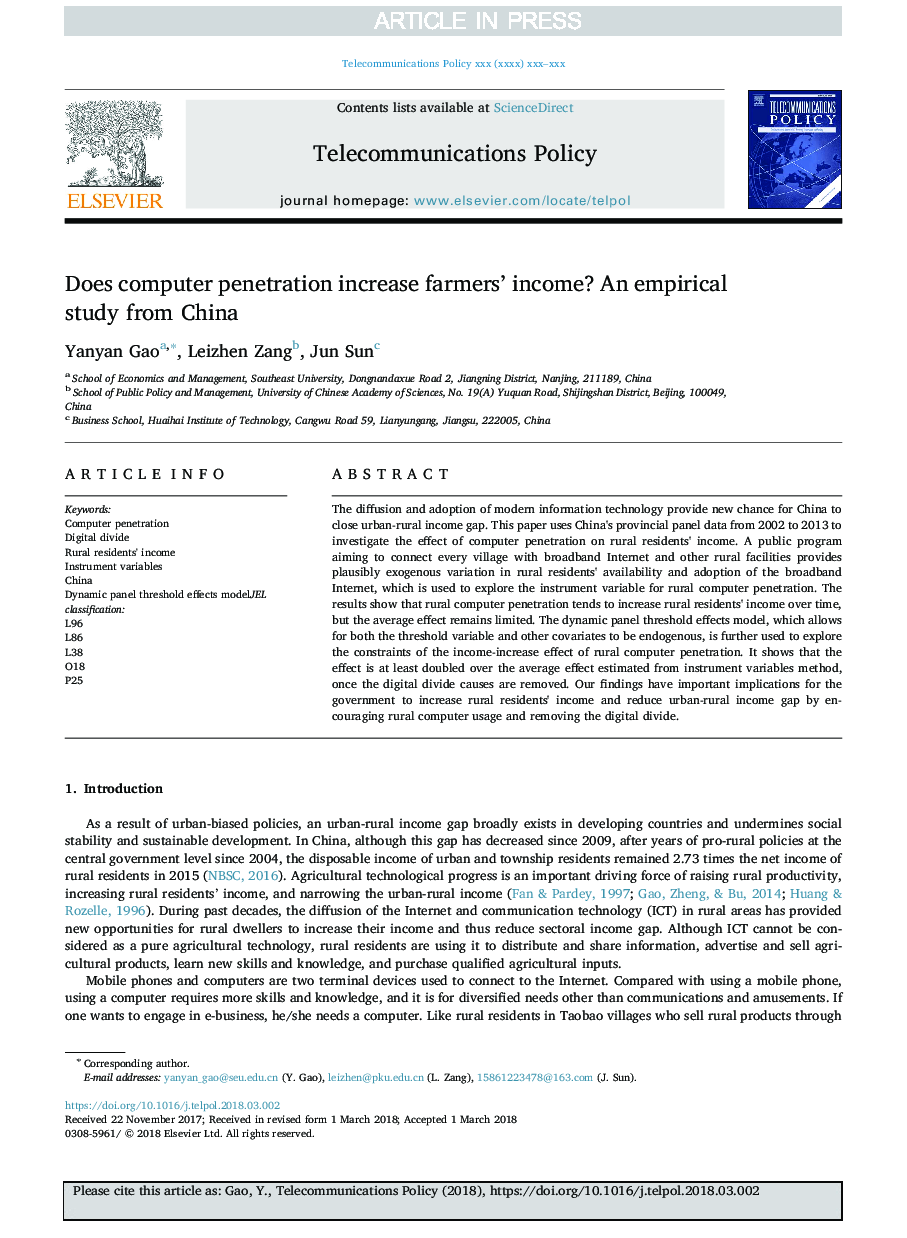| Article ID | Journal | Published Year | Pages | File Type |
|---|---|---|---|---|
| 6950229 | Telecommunications Policy | 2018 | 16 Pages |
Abstract
The diffusion and adoption of modern information technology provide new chance for China to close urban-rural income gap. This paper uses China's provincial panel data from 2002 to 2013 to investigate the effect of computer penetration on rural residents' income. A public program aiming to connect every village with broadband Internet and other rural facilities provides plausibly exogenous variation in rural residents' availability and adoption of the broadband Internet, which is used to explore the instrument variable for rural computer penetration. The results show that rural computer penetration tends to increase rural residents' income over time, but the average effect remains limited. The dynamic panel threshold effects model, which allows for both the threshold variable and other covariates to be endogenous, is further used to explore the constraints of the income-increase effect of rural computer penetration. It shows that the effect is at least doubled over the average effect estimated from instrument variables method, once the digital divide causes are removed. Our findings have important implications for the government to increase rural residents' income and reduce urban-rural income gap by encouraging rural computer usage and removing the digital divide.
Related Topics
Physical Sciences and Engineering
Computer Science
Information Systems
Authors
Yanyan Gao, Leizhen Zang, Jun Sun,
